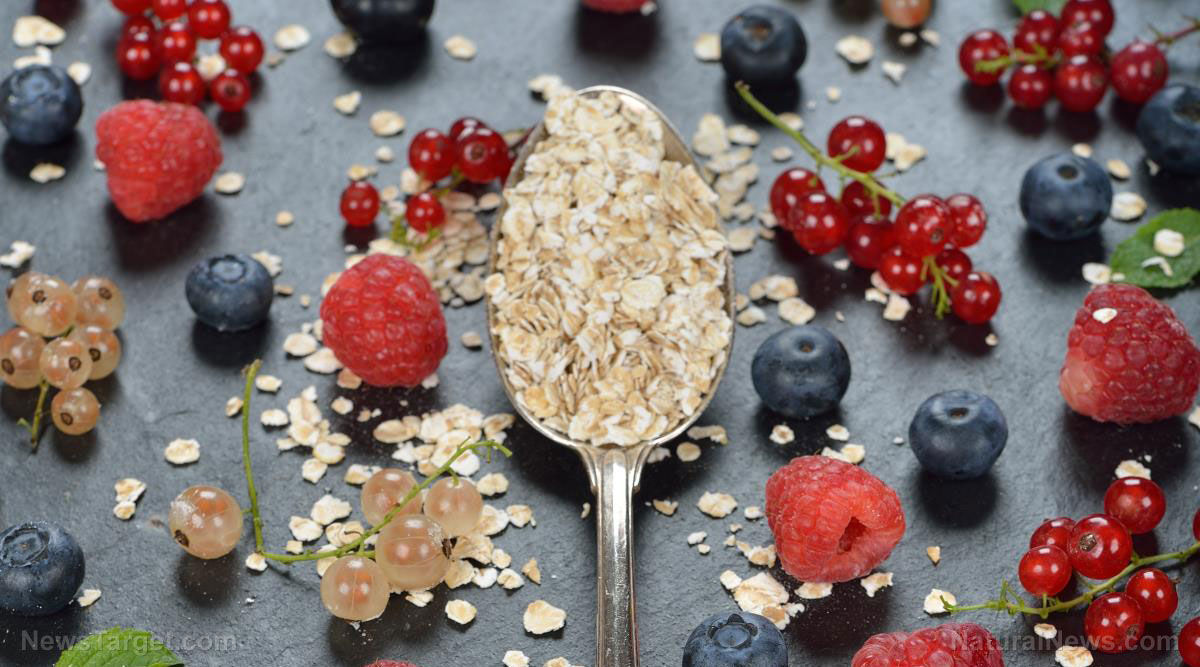Gluten-free diets: Can people with celiac disease eat oats and oatmeal?
11/03/2019 / By Evangelyn Rodriguez

Celiac disease is an autoimmune disease that causes damage to the small intestine. When people with this disease ingest gluten, this protein triggers an immune response that damages the villi, which are small projections along the small intestine necessary for nutrient absorption. The consequences of gluten consumption for people with celiac disease can be severe, hence they avoid most grains like wheat, rye, and barley that contain this protein. But one type of grain is the subject of debate when it comes to its gluten content. Oats (Avena sativa), which are commonly eaten in the form of oatmeal or rolled oats, is often considered and even marketed as gluten-free. However, though there are strict regulations when it comes to the labeling of oat products as “gluten-free,” many consumers are either unaware of this or doubt its veracity. So are oats really safe for people with celiac disease? Or is this popular health food something they should avoid?
Oats: Health benefits and nutrient content
Oats are a cereal grain that can be used in many ways. They can be made into porridge or breakfast cereal, or used as an ingredient in a variety of baked goods. Oats are a wonderful source of dietary fiber, which the body needs to maintain digestive health and prevent disease. Some of the health benefits associated with eating oats include:
- Rich source of antioxidants
- Reduce total blood cholesterol and triglycerides
- Boost immune function
- Relieve constipation
- Lower obesity risk
- Decrease blood pressure
- Prevent colorectal cancer
Besides fiber, oats also contain plenty of protein, as well as vitamins and minerals, such as:

- Folate
- Niacin
- Pantothenic acid
- Riboflavin
- Thiamine
- Vitamin B6
- Copper
- Iron
- Magnesium
- Manganese
- Phosphorus
- Potassium
- Selenium
- Zinc
Whole oats are the only source of avenanthramides, which are polyphenolic plant compounds that have antioxidant, anti-inflammatory, anti-itching, and anti-hypertensive properties.
Regulations and safety of oats for people with celiac disease
Oats in their natural form are gluten-free. As long as they don’t come into contact with other grains or foods that contain gluten, they should be safe for people with celiac disease. However, not every oat product sold on the market qualifies as gluten-free. (Related: 8 Ways to Build a Gluten-Free Pantry.)
During manufacturing, oats can be contaminated when they are processed in facilities where gluten-containing foods like wheat and wheat products are also processed. The use of the same equipment can also result in contamination with gluten, which is why manufacturers sometimes put a warning on some food labels that says, “Manufactured on shared equipment.” A list of common food allergens, such as peanuts, tree nuts, wheat, soy, or milk, usually follows this warning.
Because of this manufacturing practice and the high possibility of gluten contamination, the U.S. Food and Drug Administration (FDA) has strict regulations when it comes to food labeling. According to the FDA’s food labeling rule, products with the label “gluten-free,” “no gluten,” “free of gluten,” or “without gluten” should contain less than 20 parts per million of gluten. They also shouldn’t contain any type of wheat, rye, barley, or crossbreeds of these grains; any derivative of these grains that still contains gluten; or any derivative whose processing results in contamination with more than 20 ppm of gluten.
So if you have celiac disease and are wondering if you can eat oats, the quick answer is yes. However, you need to look for oats with a certified gluten-free label to ensure that they are safe for you to consume. While some celiac patients may still show sensitivity even toward uncontaminated oats, most have no problems eating certified gluten-free oats. Alternatively, you can purchase organic oats from local producers, which is a far better and healthier option, as these oats are grown without pesticides or fertilizers and are thus generally safer to consume.
Sources include:
Submit a correction >>
Tagged Under:
anti-hypertensive, anti-inflammatory, anti-itching, antioxidants, autoimmune disease, avenanthramides, celiac disease, cereal grains, cholesterol-lowering, clean food, dietary fiber, digestion, digestive health, FDA regulations, food cures, food is medicine, food labeling, food processing, food safety, functional food, gluten, gluten contamination, gluten free, immune response, immune system, ingredients, nutrients, oatmeal, oats, organics, prevention, rolled oats, small intestines
This article may contain statements that reflect the opinion of the author





















